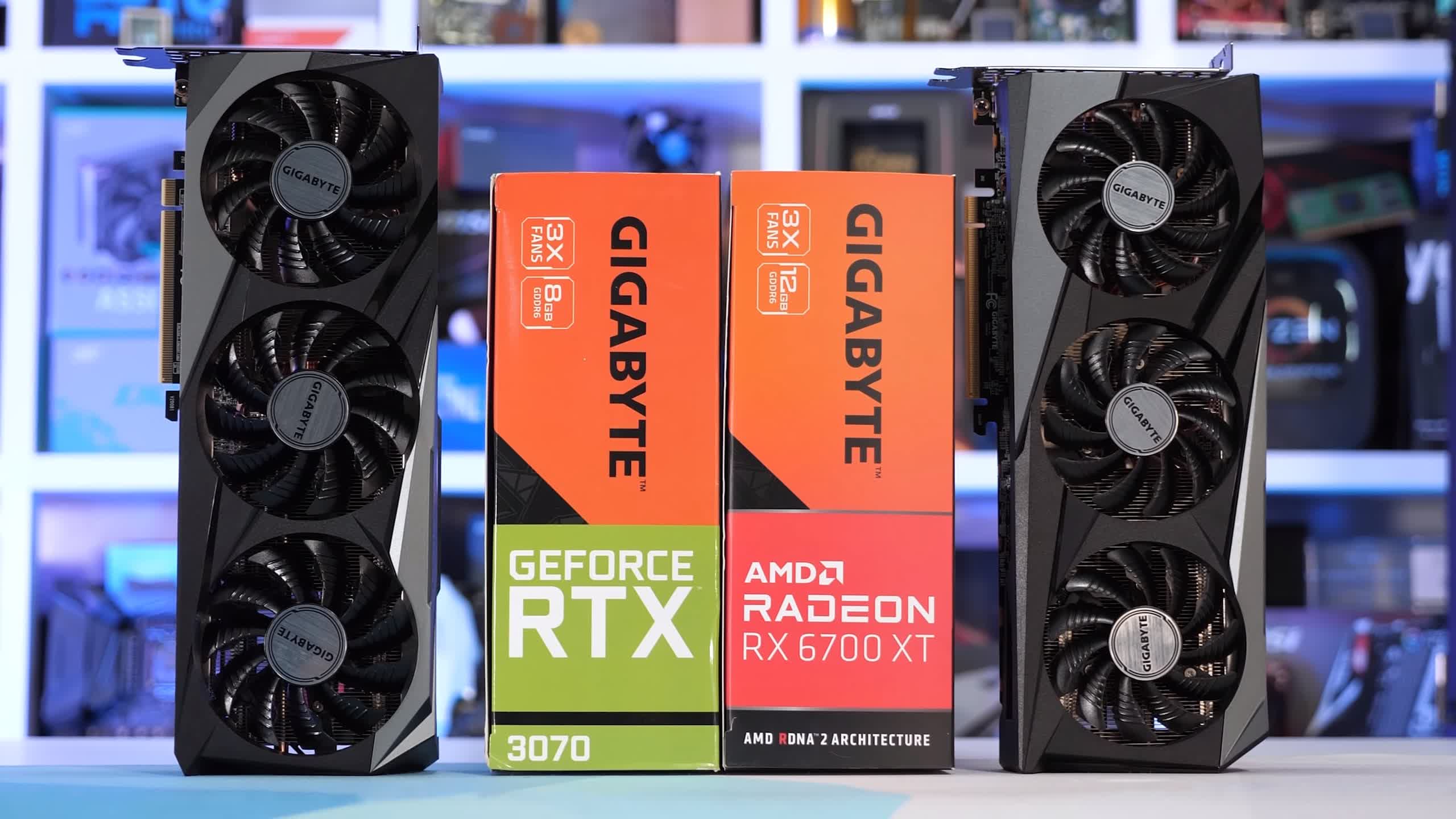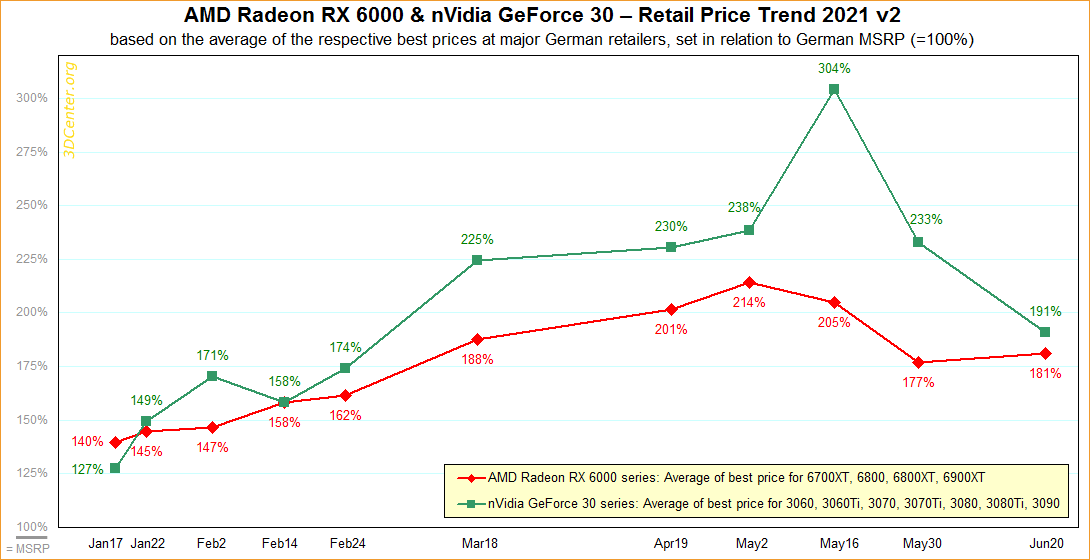Why it matters: The end of the graphics card crisis may not be in sight, but there are signs that the situation is improving. The latest of these is a new report highlighting declining prices and improving availability, particularly when it comes to Nvidia's products.
The good news comes from German site 3DCenter, whose report shows the average price of RTX 3000-series cards in Germany has fallen from three times above MSRP last month to just under double in June. That's still very high, of course, but the decline has been rapid and is expected to continue on this trajectory.
The publication also writes that availability of team green's Ampere line has improved significantly, the only exception being the RTX 3060 Ti, which is still in very high demand.
Image Credit: 3DCenter
AMD's cards have experienced similar if less extreme price movements. The Radeon RX 6000 line was 114% above MSRP in early May and has fallen to 81% in June, though there has been a small increase across the last three weeks.
The RDNA 2 cards, which have long been even more difficult to find than Ampere, are also seeing their availability in the country improve, albeit not on the same level as Nvidia's offerings.
The caveat here is that the figures apply only to Germany, but other locations, including Australia, are experiencing similar trends.
The report comes after ASRock said the price of graphics cards was starting to fall and that shipments of AMD cards will improve as substrate production capacity increases. Much of the change has been put down to China's clampdown on crypto mining that recently expanded to the Sichuan province, where cheap hydropower had attracted mining farms. There's also the arrival of Lite Hash Rate (LHR) versions of RTX 3080, RTX 3070, and RTX 3060 Ti cards, as well as physical retailers implementing more measures to stop scalpers.
Our monthly look at GPU availability and pricing shows the average eBay selling price of Ampere/RDNA 2 cards fell -8% from May to June, while the Nvidia RTX 2000-series was down -14% during the same period.

